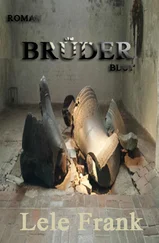Frank Tallis - Vienna Blood
Здесь есть возможность читать онлайн «Frank Tallis - Vienna Blood» весь текст электронной книги совершенно бесплатно (целиком полную версию без сокращений). В некоторых случаях можно слушать аудио, скачать через торрент в формате fb2 и присутствует краткое содержание. Жанр: Исторический детектив, на английском языке. Описание произведения, (предисловие) а так же отзывы посетителей доступны на портале библиотеки ЛибКат.
- Название:Vienna Blood
- Автор:
- Жанр:
- Год:неизвестен
- ISBN:нет данных
- Рейтинг книги:3 / 5. Голосов: 1
-
Избранное:Добавить в избранное
- Отзывы:
-
Ваша оценка:
- 60
- 1
- 2
- 3
- 4
- 5
Vienna Blood: краткое содержание, описание и аннотация
Предлагаем к чтению аннотацию, описание, краткое содержание или предисловие (зависит от того, что написал сам автор книги «Vienna Blood»). Если вы не нашли необходимую информацию о книге — напишите в комментариях, мы постараемся отыскать её.
Vienna Blood — читать онлайн бесплатно полную книгу (весь текст) целиком
Ниже представлен текст книги, разбитый по страницам. Система сохранения места последней прочитанной страницы, позволяет с удобством читать онлайн бесплатно книгу «Vienna Blood», без необходимости каждый раз заново искать на чём Вы остановились. Поставьте закладку, и сможете в любой момент перейти на страницу, на которой закончили чтение.
Интервал:
Закладка:
“It is a preliminary work on the origins of our glorious language,” said Von Triebenbach, stealing the initiative from his junior companion. “A wonderful piece of scholarship.”
“In which case, I very much hope that we shall be hearing more on the subject this evening,” said the professor. With that, he turned and walked to the nearest pew. He was wearing an old-fashioned frock coat, and clasped his hands behind his back. His gait was distinctly avian, which, combined with his choice of clothing, made him look like a great stalking crow. When he reached the pew, he sat down and took an envelope from his pocket. He opened it, withdrew a single sheet of paper, and began reading the letter.
“I believe that congratulations are in order?” said Von Triebenbach, leaning toward Olbricht. It was, perhaps, a conciliatory gesture, the older man having just deprived the younger one of an opportunity to demonstrate the breadth of his reading.
“Oh?” said Olbricht, staring at Von Triebenbach with his wide-eyed, froglike gaze.
“The commission.”
Olbricht smiled, revealing again his square little teeth. “How did you hear about that?”
“I am a business associate of Herr Bolle,” Von Triebenbach replied.
“Ah,” Olbricht said. “I see. Yes, Herr Bolle requires a large canvas for his country house. I received the commission on account of the kind ministrations of my patron, Baroness von Rautenberg. She plays cards with Herr Bolle's wife.”
“And the subject of your new work? What will it be?”
“I haven't quite decided yet. Although, Herr Bolle has stipulated that it must be a scene from The Ring.” Von Triebenbach nodded with satisfaction. “The gods engulfed by fire, the ride of the Valkyries, or Siegfried's funeral pyre, perhaps.”
“Outrageous!” cried the professor.
Von Triebenbach and Olbricht were at first astonished, because it seemed that the professor was-quite unaccountably-objecting to Herr Bolle's aesthetic preferences. The misunderstanding was swiftly resolved, however, when Foch raised the letter he had been reading and with small, jerky movements, tore it from top to bottom.
“It is from the dean of the medical faculty,” he huffed. “I don't believe it! I have been reprimanded for my treatment of the female students.”
Von Triebenbach and Olbricht were still unsure how to respond.
“The faculty should never have allowed it!” the professor continued. “Women doctors! Who ever heard of such nonsense? I told them that women were ill-suited to the demands of a medical training, and they ignored me. Women are weak, squeamish… How can they be expected to open up a man's chest without swooning! And how can it be correct for a young woman-from a good family-to be exposed to those parts of the male anatomy that should by rights be of no concern to her until her wedding night?”
The professor quartered the letter and, rising to his feet, marched to the stove, where he posted each of the four pieces through the grill.
“I could not agree with you more, Herr Professor” said Von Triebenbach. “I would never subject myself to the humiliating experience of examination at the hands of a woman, however qualified. But for what-exactly-have you been reprimanded?”
“It has been my great misfortune,” continued the professor, “to have, in my demonstration classes, several of these new female students. They are a confounded nuisance! At the first sight of blood they become pale, distraught, and a distraction to the young men. Subsequently, I have had to insist-on no less than five occasionsthat they leave. Typically, these women-these girls-claim that they were not overwhelmed, and that I have misjudged their condition. I- a doctor for some thirty years-am supposed to be in error. And those fools, the dean and his cronies, are stupid enough, idiotic enough, to countenance this despicable calumny.”
“Appalling,” said Olbricht, “that a person of distinction, such as yourself, Herr Professor, should be treated with such little respect.”
“Damned hypocrites!” cried the professor. “In actuality, the dean and his cronies are as opposed to women being admitted into the faculty as I am. But, being spineless sycophants, they are less inclined to resist political pressure.”
“I tell you,” said Von Triebenbach, shaking his head. “This city is courting catastrophe and ruin. I pray and hope that we are not too late. Otherwise, I fear that all shall be undone.”
Von Triebenbach's words gave way to a low, thrumming sound, a hollow reverberation of increasing magnitude. Someone was descending the stairwell. As each hurried step became more distinct, the three men tensed slightly, adopting frozen, expectant postures. The latch lifted, and the door at the back of the chamber burst open, revealing a young man. He was wearing a brown suit, and a yellow-and-green checked scarf was wrapped loosely around his neck. His hair was long, swept back, and so blond as to be almost white. Under his left arm he carried a portfolio. On entering the chamber, he lifted his right arm and called out, “Heil und Sieg!”
Salvation and Victory.
In unison, the company returned the ancient greeting and battle cry.
The young man then marched aaround the pews and entered the central open area of the horseshoe. Nodding at Olbricht and the professor, he turned questioningly to Von Triebenbach and said, “Is it true? He's coming? Tonight?”
Von Triebenbach placed an avuncular hand on the young man's shoulder. “We hope so.”
Hermann Aschenbrandt raked a handful of platinum strands back from his forehead.
“That is wonderful news. Wonderful.” He looked at Olbricht and the professor. “We are most fortunate. Truly.” Then, addressing Von Triebenbach again, he added, “Herr Baron, I beg you, when the meeting is adjourned-may I play him the overture to my opera? It is based on his great novel Carnuntum. It would be such an honor. Such an honor.”
The young man's eyes were a clear powder-blue-and they positively flashed with eagerness. He was breathless with excitement.
Von Triebenbach, amused-as always-by the energy and zeal of his young favorite, threw his head back and laughed heartily.
“We can but ask him, my dear friend. And perhaps he will condescend to hear your work. He is a man of generous spirit.”
Aschenbrandt inhaled deeply, and his chest expanded. “Such an honor,” he repeated, his thin lips curling to form a slightly lopsided smile.
8
Rheinhardt tested the upper register of his voice with an ambitious arpeggio. He held the top note for a few moments and winced.
“No,” said Rheinhardt. “There's definitely something wrong. My pitch is off when I go above middle C.”
“Perhaps it is the cold?” said Liebermann.
“Cold?”
“Yes-cold. Surely the weather hasn't escaped your attention, Oskar?”
“No, it hasn't,” said Rheinhardt, again worrying his refractory high E. “Even so, I should have warmed up by now.”
“There is no instrument more sensitive,” declared Liebermann, “than the human voice.”
“I suppose you're right,” Rheinhardt muttered.
“Perhaps we should finish with something”-Liebermann allowed his fingers to find a simple C-major triad-”undemanding. Something that will be kinder to your vocal cords?”
“An die Musik?” Rheinhardt suggested.
Liebermann's expression changed: a slight, almost imperceptible tensing of the jaw that showed reluctance. This was not because Liebermann disliked Schubert's setting of Von Schober's paean to the “blessed art” of music-making-rather the exact opposite. The words expressed sentiments that he felt so deeply, so profoundly, that for him the song had the qualities of a prayer. Playing An die Musik was like a personal affirmation of faith. If Rheinhardt's voice had been affected by the cold, he didn't want to squander a performance. To do so would be almost sacrilegious.
Читать дальшеИнтервал:
Закладка:
Похожие книги на «Vienna Blood»
Представляем Вашему вниманию похожие книги на «Vienna Blood» списком для выбора. Мы отобрали схожую по названию и смыслу литературу в надежде предоставить читателям больше вариантов отыскать новые, интересные, ещё непрочитанные произведения.
Обсуждение, отзывы о книге «Vienna Blood» и просто собственные мнения читателей. Оставьте ваши комментарии, напишите, что Вы думаете о произведении, его смысле или главных героях. Укажите что конкретно понравилось, а что нет, и почему Вы так считаете.












